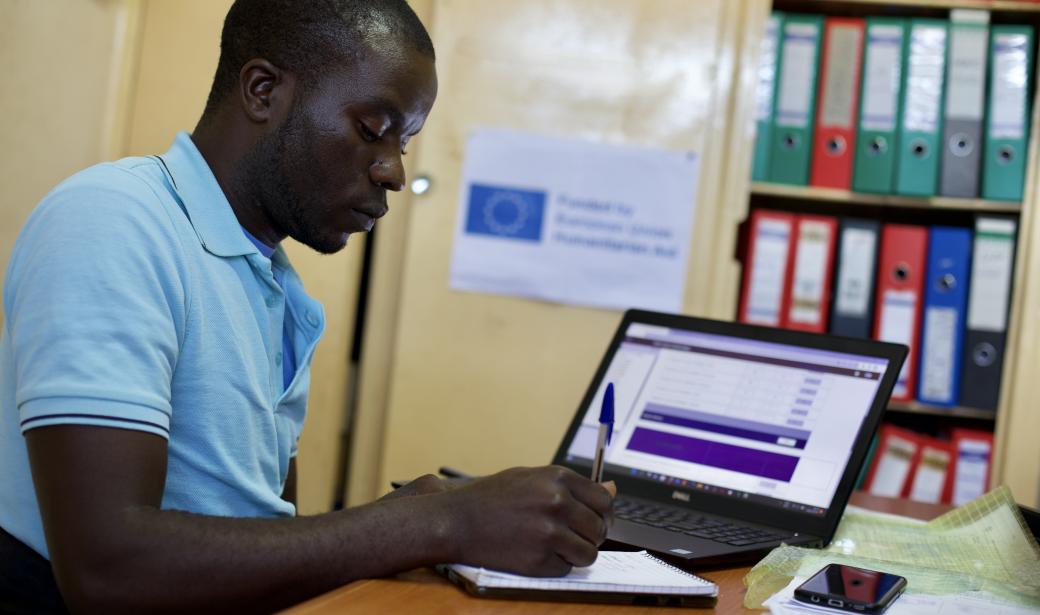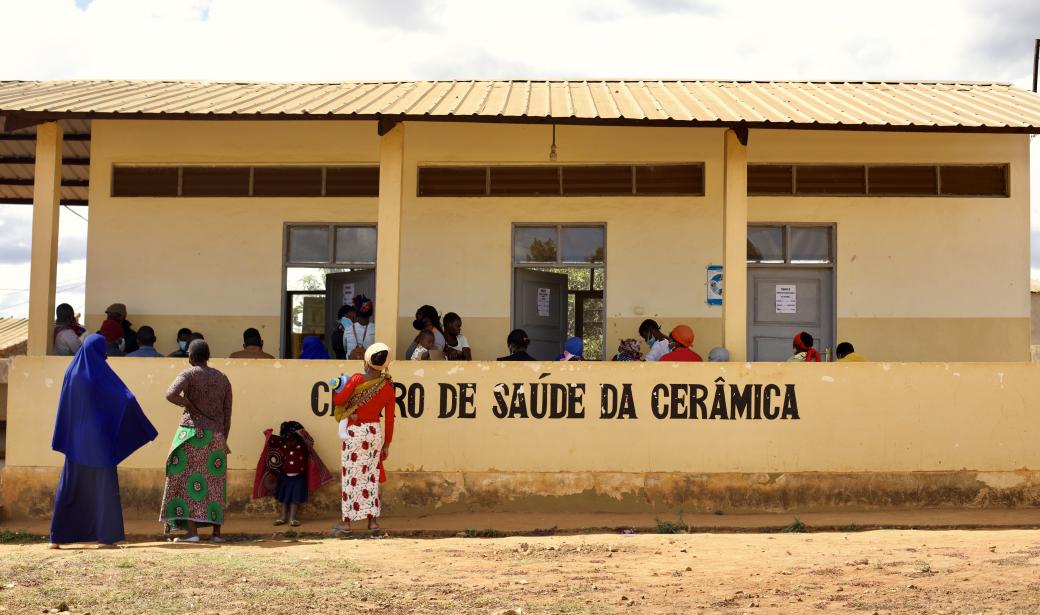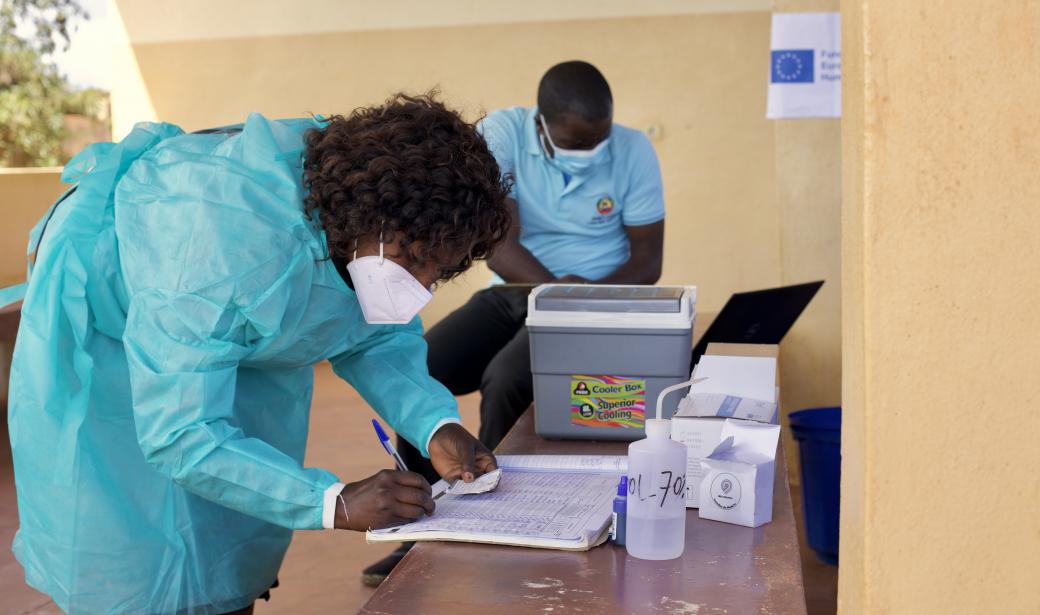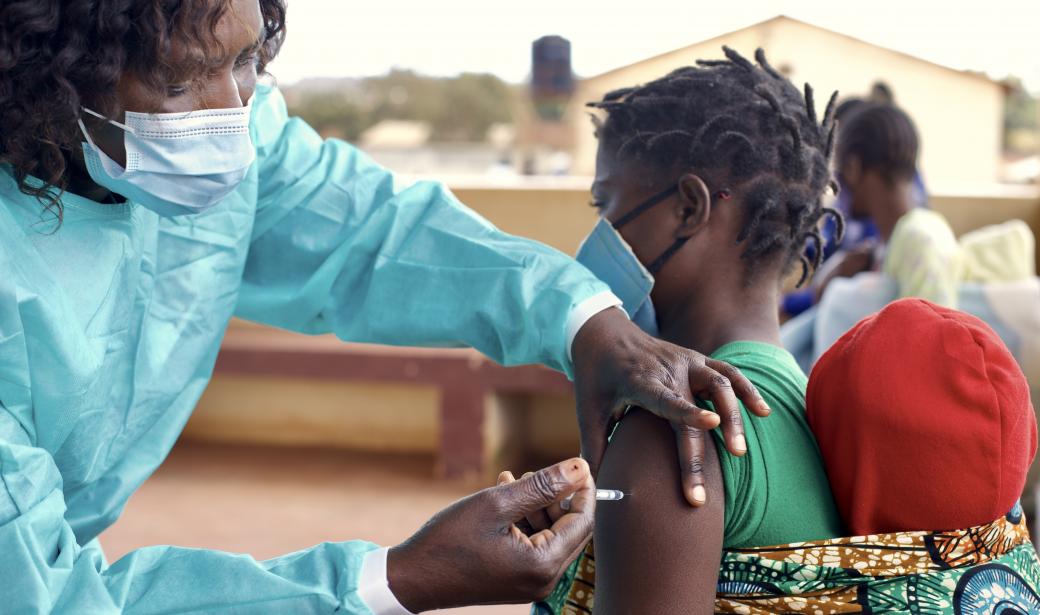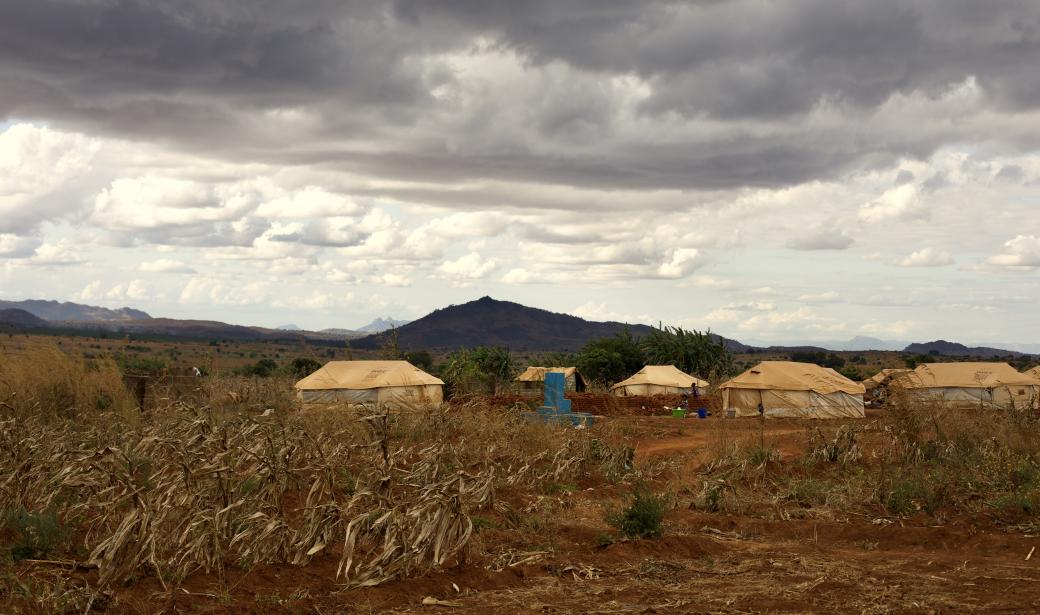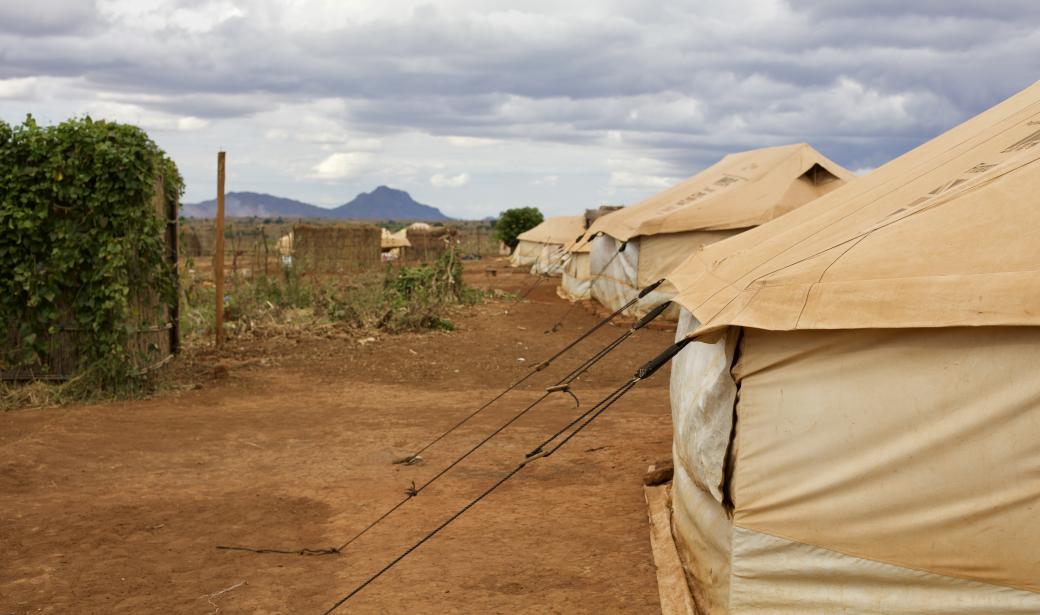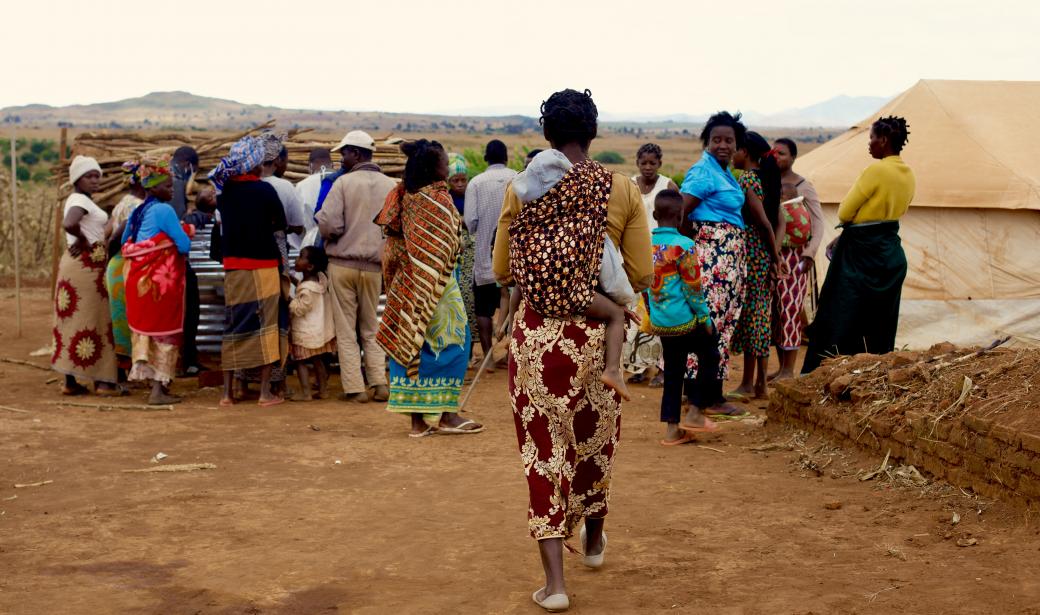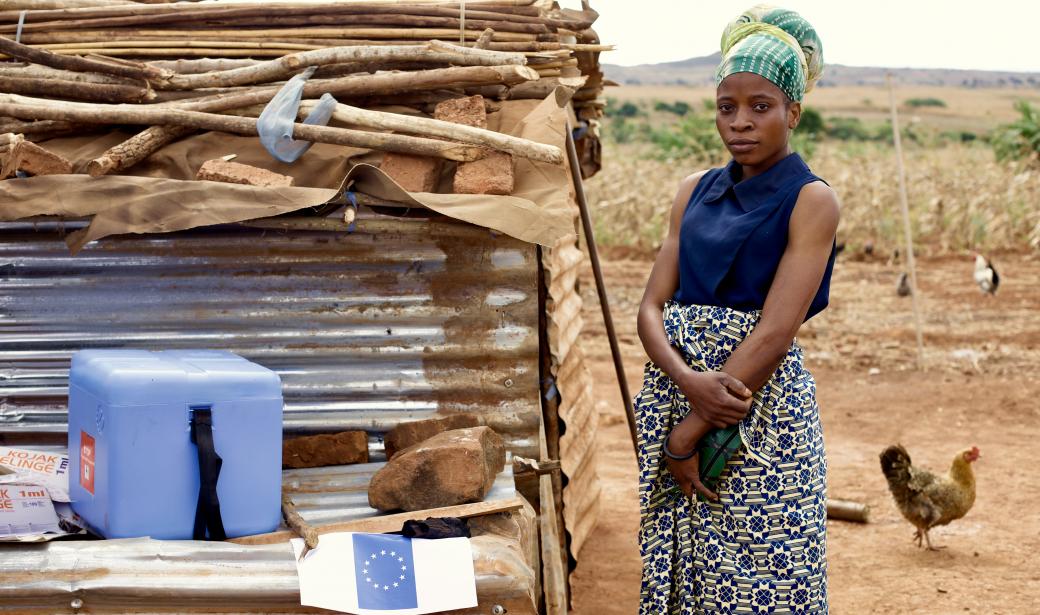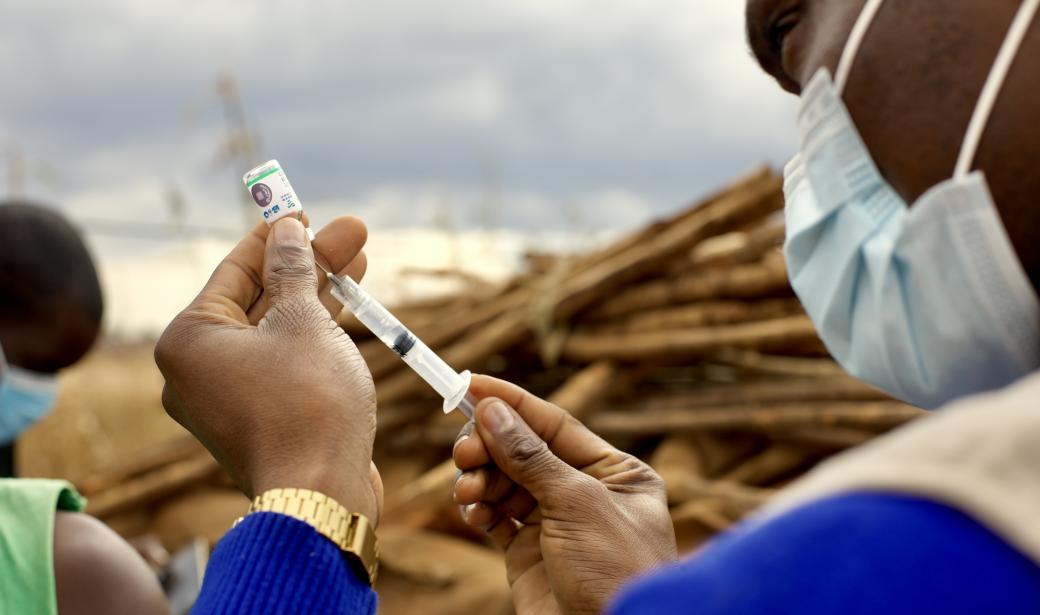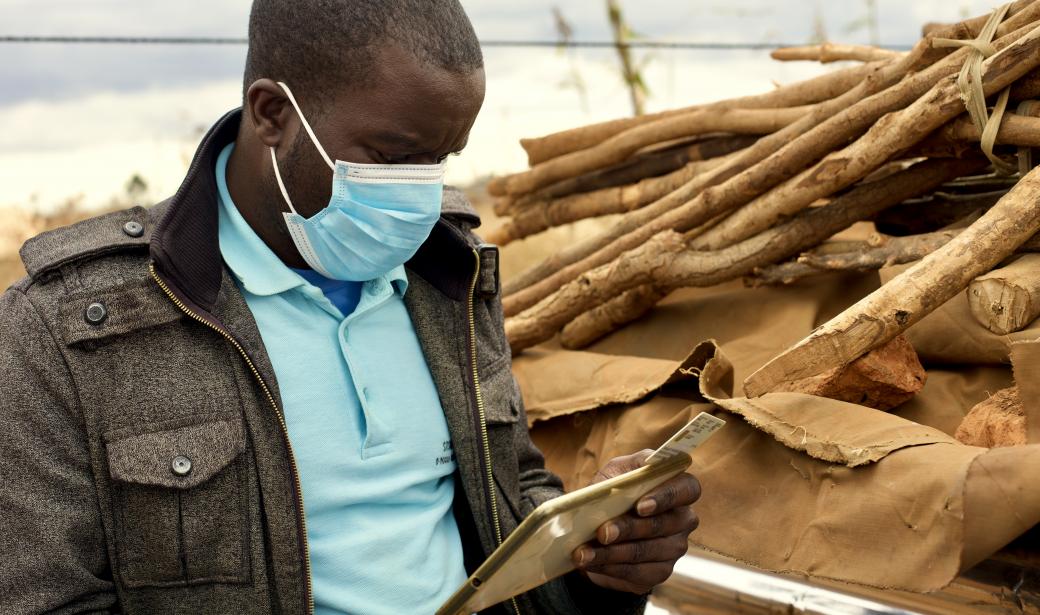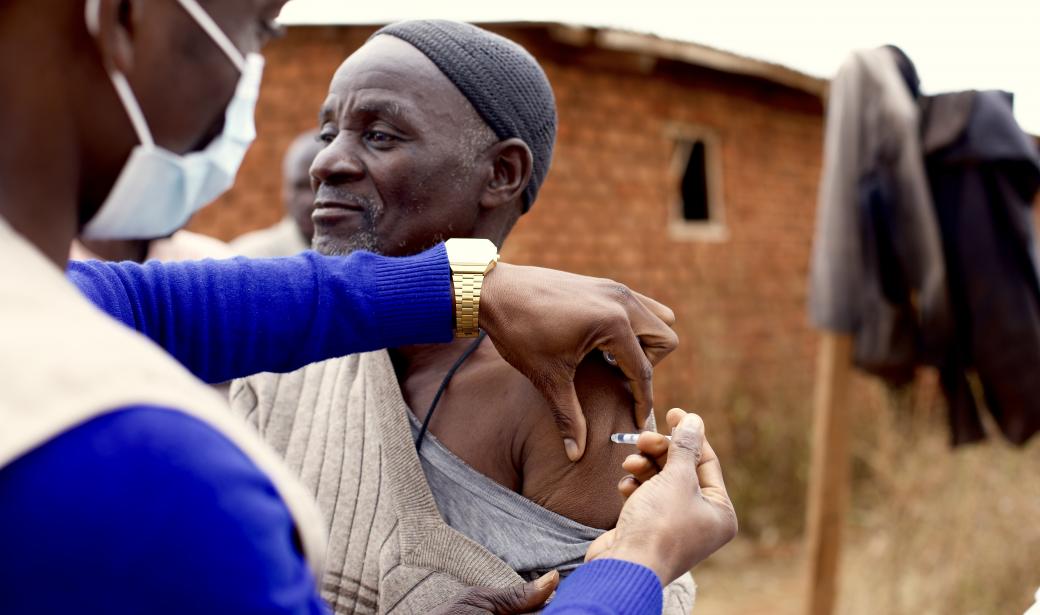Lichinga, Mozambique – In Mozambique’s northern Niassa province, health workers have been trained on data management for an effective rollout of the COVID-19 vaccination. The training by World Health Organization with support from the European Commission’s Directorate-General for European Civil Protection and Humanitarian Aid Operations (the ECHO fund), is helping to ensure that all eligible people in hard-to-reach places receive the vaccine.
WHO/Alexia Dickinson
Celio Marcelino has an early start at work at the Lichinga’s District Health Office. He is entering data from vaccination register books into the country’s digital Health Information System for Monitoring and Evaluation. He is one of the health workers who received the data management training.
“We were very excited about it. I studied statistics so good quality data means a lot to me,” he says. “Thanks to the training, it’s easier to make sure we are reaching everyone on a campaign, even vulnerable groups. We can log on to the platform and access the data without having to go through physical records. It’s all in one place. Our reporting has improved so much.”
For Dr Carlos Funzamo, WHO Technical Lead Officer on the ECHO project in Mozambique, the training has made useful inroads. “We didn’t expect health professionals to respond so well. In the field you vaccinate but it’s hard to measure progress. Now you can access the data in an instant. ‘We can see what we are doing’ some said. They were very happy to visualise their work,” Dr Funzamo notes.
WHO has trained over 165 statisticians, data managers, focal points, Expanded Programme on Immunization officers and district chiefs in four provinces since May 2022. “The health professionals who deal with data are not just working on COVID-19 but on Malaria, TB, Polio… The skills are transferable. Thanks to ECHO, we can strengthen the entire health system,” says Dr Funzamo.
“We were very excited about it. I studied statistics so good quality data means a lot to me,” he says. “Thanks to the training, it’s easier to make sure we are reaching everyone on a campaign, even vulnerable groups. We can log on to the platform and access the data without having to go through physical records. It’s all in one place. Our reporting has improved so much.”
For Dr Carlos Funzamo, WHO Technical Lead Officer on the ECHO project in Mozambique, the training has made useful inroads. “We didn’t expect health professionals to respond so well. In the field you vaccinate but it’s hard to measure progress. Now you can access the data in an instant. ‘We can see what we are doing’ some said. They were very happy to visualise their work,” Dr Funzamo notes.
WHO has trained over 165 statisticians, data managers, focal points, Expanded Programme on Immunization officers and district chiefs in four provinces since May 2022. “The health professionals who deal with data are not just working on COVID-19 but on Malaria, TB, Polio… The skills are transferable. Thanks to ECHO, we can strengthen the entire health system,” says Dr Funzamo.
Marcelino arrives at Ceramica health centre equipped with his tablet for data entry. “This is a primary data source. I’m supporting a colleague on the first day of this COVID-19 vaccination round,” he says. With 40.8% of adults fully vaccinated, nationwide efforts are now aiming to reach children under 18.
“There could be a fifth wave of COVID-19 in Mozambique, so I still encourage people to use preventative measures like mask-wearing, handwashing and social distancing,” explains Jaime.
Looking at the growing waiting line outside, Marcelino waves his team goodbye, “Be strong everyone!”
The statistician is headed to Malika, a settlement for internally displaced people some 15 km from Lichinga.
Looking at the growing waiting line outside, Marcelino waves his team goodbye, “Be strong everyone!”
The statistician is headed to Malika, a settlement for internally displaced people some 15 km from Lichinga.
The settlement hosts people who fled Cabo Delgado province, where armed groups have forced over 800 000 people from their homes since 2017. Niassa province alone is hosting more than 40 000 people displaced by the conflict, the majority being women and children.
A key ECHO fund aim is better access to COVID-19 vaccination for vulnerable populations and those in areas affected by conflict or natural disasters.
Dr Kiamuangana Nkongolo, Consultant Technical Officer with WHO, was in the field when Tropical Storm Ana hit a nearby region in early 2022. “Many became homeless overnight. Emergency shelters mean people live in close, with limited clean water and sanitation. This led to a higher risk of COVID-19,” says Dr Nkongolo. “Thanks to ECHO and the World Health Organization, we were able to prioritise these groups, set up health posts and vaccinate fast.”
A key ECHO fund aim is better access to COVID-19 vaccination for vulnerable populations and those in areas affected by conflict or natural disasters.
Dr Kiamuangana Nkongolo, Consultant Technical Officer with WHO, was in the field when Tropical Storm Ana hit a nearby region in early 2022. “Many became homeless overnight. Emergency shelters mean people live in close, with limited clean water and sanitation. This led to a higher risk of COVID-19,” says Dr Nkongolo. “Thanks to ECHO and the World Health Organization, we were able to prioritise these groups, set up health posts and vaccinate fast.”
When Marcelino arrives in Mallika, a makeshift vaccination post is set up along the side of a corrugated iron kitchen. It belongs to Julieta Jose, who fled Cabo Delgado, some 500 km away. “We came a few months ago with my husband and son. I had a business selling fish on the beach. Since escaping I’ve had a hard time finding new ways to make a living,” she says.
Jose watches over the operation. She has already had her three doses so won’t be getting vaccinated today. “I’m very happy about the visit from the team today because some people here in the community were never vaccinated. It’s the best way to prevent COVID-19. I told everyone I know to come and get it”.
Jafarasa Sadat, the provincial lead of the Expanded Programme on Immunization, prepares the vaccine. “Health interventions in camps for internally displaced people were hard at first,” he says. “People were distressed because of fleeing conflict. Over time acceptance of health services has improved. For many today, this is their first COVID-19 vaccination dose.”
As vaccinations reach dozens of people, Marcelino logs data into the digital records system. “I’m making sure everyone here is added to our records,” he says.
He believes mobile vaccination teams or “brigades”, as they are commonly known here, are the best way to provide the COVID-19 vaccine to disadvantaged groups. “People here have been through a lot. Many don’t have the option of accessing a fixed post or health centre outside the camp,” he adds.
He believes mobile vaccination teams or “brigades”, as they are commonly known here, are the best way to provide the COVID-19 vaccine to disadvantaged groups. “People here have been through a lot. Many don’t have the option of accessing a fixed post or health centre outside the camp,” he adds.
Sadat administers the last shot of the day to Jauado Alifa, a community leader here at Malica. Alifa jokes about the fact that this is his first dose despite being a mobiliser on the campaign. He waited patiently so mothers and younger men could go before him.
Alifa doesn’t flinch when the syringe goes in but bursts into laughter as soon as it comes out.
His cheerfulness has reached the team when Marcelino adds: “As health professionals, we want to give people morale and to know they are not alone. They can count on us.”
Alifa doesn’t flinch when the syringe goes in but bursts into laughter as soon as it comes out.
His cheerfulness has reached the team when Marcelino adds: “As health professionals, we want to give people morale and to know they are not alone. They can count on us.”
For Additional Information or to Request Interviews, Please contact:
Joelma Pereira
Communications Officer
Email: pereirajo [at] who.int (pereirajo[at]who[dot]int)
Tel: +258 50 92 714
Meenakshi Dalal
Media Relations Officer
WHO Regional Office for Africa
Email: dalalm [at] who.int (dalalm[at]who[dot]int)
Tel: +254 703 245 761 (WhatsApp)



